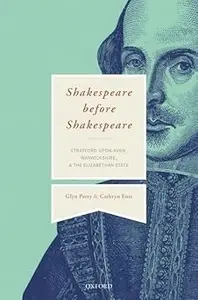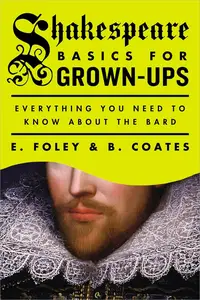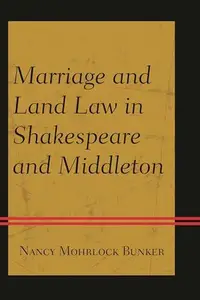
Free Download Glyn Parry, "Shakespeare Before Shakespeare: Stratford-upon-Avon, Warwickshire, and the Elizabethan State"
English | ISBN: 0198862911 | 2020 | 234 pages | PDF | 1457 KB
Before William Shakespeare wrote world-famous plays on the themes of power and political turmoil, the Shakespeare family of Stratford-upon-Avon and their neighbors and friends were plagued by false accusations and feuds with the government ― conflicts that shaped Shakespeare’s sceptical understanding of the realities of power. This ground-breaking study of the world of the young William Shakespeare in Stratford and Warwickshire discusses many recent archival discoveries to consider three linked families, the Shakespeares, the Dudleys, and the Ardens, and their battles over regional power and government corruption. Robert Dudley, earl of Leicester, and Ambrose Dudley, earl of Warwick, used politics, the law, history, and lineage to establish their authority in Warwickshire and Stratford, challenging political and social structures and collective memory in the region. The resistance of Edward Arden ― often claimed as kin to Mary Arden, Shakespeare’s mother ― and his friends and family culminated in his execution on false treason charges in 1583. By then the Shakespeare family also had direct experience with the London government’s power: in 1569, Exchequer informers, backed by influential politicians at Court, accused John Shakespeare, William’s father, of illegal wool- dealing and usury. Despite previous claims that John had resolved these charges by 1572, the book’s new sources show the Exchequer’s continuing demands forced his withdrawal from Stratford politics by 1577, and undermined his business career in the early 1580s, when young William first gained an understanding of his father’s troubles. At the same time, Edward Arden’s condemnation by the Elizabethan regime proved problematic for the Shakespeares’ friends and neighbours, the Quineys, who were accused of maintaining financial connections to the traitorous Ardens ― though Stratford people were convinced of their innocence. This complicated community directly impacted Shakespeare’s own perspective on local and national politics and social structures, connecting his early experiences in Stratford and Warwickshire with many of the themes later found in his plays.



